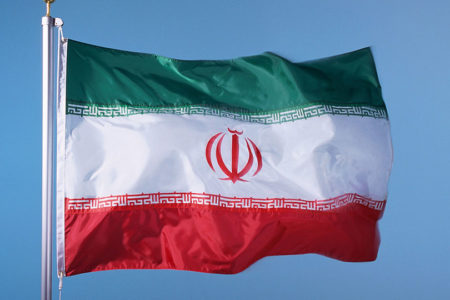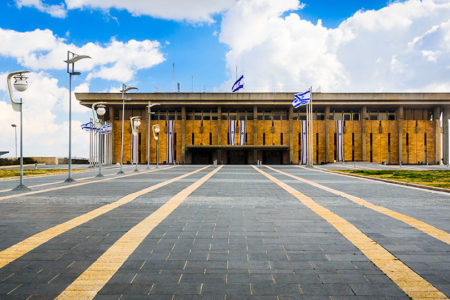Eye on the Middle East Oct/Nov 1998
It is often difficult to feel certain you are getting the straight story when listening to spokesmen for the Palestinian Authority and their cohorts in the Middle East.
The new Mufti of Jerusalem, Sheik Ekrima Sabri, recently appointed by Yasser Arafat, was interviewed by The IMRA News Agency. His doublespeak represents a classic exercise in how to dodge the issue by saying things like, “They have it, but they don’t.” Or, “Maybe we’ll rent it to them, but don’t hold your breath.” The subject in question is the Islamic claims to Jerusalem and the entire land of Palestine.
IMRA: You were recently quoted as saying that both eastern and western Jerusalem are wafk [Muslim property]. What is the policy implication of this? Does this mean that the PA should control both areas?
Sabri: I really declared that both east and west Jerusalem are wafk. I don’t deny this. This is the point of view of the religion. It is known that, from a religious standpoint, not only Jerusalem but rather all of Palestine is Islamic wafk. But for a political solution, which can be accepted by both sides, this declaration wouldn’t be an obstacle to finding a solution for Jerusalem. [What was that again?]
IMRA: If something has the status of wafk, from a religious standpoint, does this have any implication with regards to sovereignty. If something is wafk then is there a problem with it being under the sovereignty of people who are not Moslem [such as Jews]?
Sabri: The point is that from a religious standpoint, it is not accepted that wafk be owned by non-Moslems. But it could be rented or useful to non-Moslems like Christians or other non-Moslems [no Jews mentioned here]. For instance, if there is land and it is wafk, if it is given to non-Moslems to use it—to build on it and gain benefit through it according to some agreement with payments, then this would not be an obstacle anyway.
Sometimes it’s called “talking out of both sides of your mouth.” But, cutting through all that the Mufti said, he made some assumptions on which he did not choose to further elaborate. One assumption was that religious deals could be made for land held politically by Muslims. This brings about the question of how this land is to be procured politically so that it can be rented to “Christians and others” (no Jews mentioned). A second assumption is that the whole of Palestine is Muslim. But how will this concept, which is, to say the least, controversial, be implemented?
Has the Mufti convinced himself that Jihad (holy war) will win the day and place him and the PA in an enviable negotiating position? Or does he fantasize that Israelis will somehow see the light, present their nation to the Islamic authorities, then eagerly line up at his office to attempt to rent back properties they foolishly thought they owned? Is there something in the water this man is drinking? We think not. What he is actually saying is what Arafat and his ilk have said all along. They have a staged plan for the destruction of the Jewish state—politically, militarily, and religiously. Then they can do with Allah’s land anything they wish. But there is one very big problem—Israel isn’t buying.







